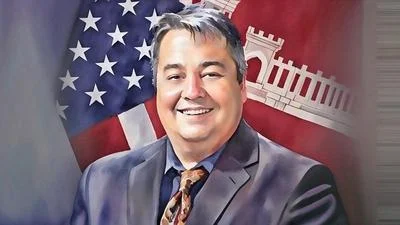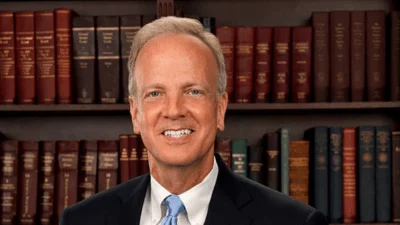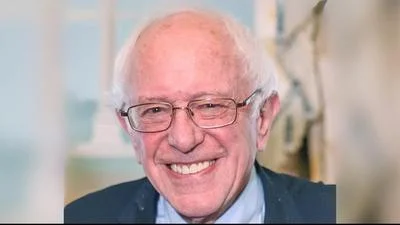Mr. President, I rise to speak about the Medicare prescription drug benefit.
In the near future, Congress will consider some fundamental changes in how the benefit
works. It's important for the public and for Medicare beneficiaries to understand the proposed
changes. And it is equally important that we explore the effect that these changes would have.
So I will be doing what I can to explain what this debate is about.
First, everyone should recognize that political opponents of the drug benefit have done --
and continue to do -- everything they can to tear apart the new benefit. They have done that since
the ink was barely dry on the Medicare Modernization Act in 2003.
First they said that no plans would offer the new drug benefit. Then when it was up and
running they said there were too many plans. They said that it was too confusing-that seniors
would not be able to choose a plan. But they have enrolled and surveys show that they're
satisfied with their with their plans. They suggested that plans could change their prices and the
drugs they cover at the drop of a hat, which is not the case. They tainted beneficiaries' views of
the benefit before it even got off the ground.
As we have all heard over and over, one of the biggest criticisms about the drug benefit is
that the government does not negotiate with drug makers for lower prices. Opponents have gone
to great lengths to make it sound like nobody is negotiating with the drug companies. It is
correct, of course, that the Secretary himself does not negotiate with drug companies. It is
absolutely not correct to say that there is no negotiation. That's complete nonsense.
The idea behind the drug benefit is that multiple drug plans would compete with each
other to get the lowest prices from manufacturers - to be the best negotiator - and to offer
beneficiaries the best possible drug plan. The plans would strive to have a lower premium, lower
drug prices and enhanced benefits. They would strive to be the plan that beneficiaries wanted to
join. And if beneficiaries don't like the job their plan is doing, they can fire them. They can go
enroll in a better plan.
You see, it is actually very simple. Harnessing the power of competition among plans
gives the Medicare program, beneficiaries, and taxpayers access to better negotiators than
anything the government could do on its own. But the opponents of the drug benefit don't like
that. They want the government itself doing the negotiating. They find it hard to believe that anyone could do a better job negotiating than big government.
Last week on the Senate floor, the Senator from Illinois said that the law "took competition out of the program so that [the drug companies] could charge what they want." Took competition out of the program? Competition is what this program is all about. And that competition is working.
Plans have no restrictions on the tools they can use to negotiate with drug companies.
This was important because one thing we had learned is that the government is not actually very
good at figuring out what it should pay for drugs.
The Washington Post recognized this too when it wrote the following in an editorial:
"Governments are notoriously bad at setting prices, and the U.S. government is notoriously bad
at setting prices in the medical realm."
We knew this because of the government's experience paying for drugs covered under
Medicare Part B. These are drugs given during a physician office visit and other drugs like oral
cancer drugs. Medicare payments for these drugs were based on what's called the average
wholesale price. AWP is like the sticker price for a car. No one actually pays that price. The
joke was that AWP actually stood for "Ain't What's Paid."
Over the past decade, reports issued by the Office of the Inspector General, the
Department of Justice, and the Government Accountability Office found that by relying AWP,
Medicare was vastly overpaying for these drugs.
Recommendations were made to change payments so that they reflected actual market
costs. The Clinton Administration tried to make some of these changes, but after push back from
providers, it backed off.
Congress took another run at this issue in 2003 in the Medicare Modernization Act and
was successful: Congress reformed how Medicare pays for these drugs under Part B. Medicare
now bases its payments for many of these drugs on a market-based price. And this change is
already saving taxpayers and beneficiaries. But it took years to get fixed and all that time,
Medicare and taxpayers paid too much for these drugs. Billions and billions of dollars wasted. I
didn't want to repeat that experience under the Medicare drug benefit.
We also knew that Medicare overpays for lots of other services and equipment. The
bookshelves are full of other reports from the GAO, the Inspector General, the Medicare
Payment Advisory Commission, the Congressional Budget Office and others about how
Medicare is paying too much in other areas.
For example, Medicare overpaid for durable medical equipment for years until the
Republican-led Congress made changes in 2005 in the Deficit Reduction Act. Each year, the
Office of the Inspector General issues its Red Book, which presents cost-saving
recommendations. The books are usually 50 or more pages long, and the recommendations span
all aspects of Medicare - hospitals, physicians, home health, plans, among others.
This is more evidence on the many areas where Medicare doesn't get the best deal.
Congress even created the Medicare Payment Advisory Commission, or MedPAC as it is known,
to provide advice on payments for services. And every year, Congress hears recommendations
from the MedPAC to address Medicare overpayments. But many times it takes years for the
Secretary of Health and Human Services or for Congress to act. In making recommendations,
MedPAC looks at profit margins, for example. One type of provider had been found to have
margins of 16 percent. A margin of 16 percent off Medicare payments.
Congress has been able to act on many MedPAC recommendations. But it can be very
hard. As Chairman of the Finance Committee, I received letters from members saying "please
don't cut payment for this provider group or that provider group."
Like the Clinton Administration found, letters like that can make it really difficult in very
short order to do anything about a problem despite compelling evidence of overpayments, despite
the high profit margins, despite the fact that a proposed change could save taxpayers billions of
dollars.
The architects of the drug benefit were concerned that this same kind of dynamic would
happen. Political pressures on the Medicare drug benefit would tie the hands of the Secretary of
HHS. If that happened, the program would be unmanageable and costs would skyrocket.
So instead, Congress put competing private plans in charge of the negotiating. These
health plans and their pharmacy benefit managers have years of experience in this arena - it's
what they do. And HHS has had very little experience and a very dismal track record.
These plans and pharmacy benefit managers have powerful bargaining clout in the
market. They manage the drug coverage for tens of millions of people. There are plans that
cover upwards of 50 million people; 75 million in one case - far more than the 41 million
Medicare beneficiaries.
Now clearly, Medicare beneficiaries account for a large number of all prescriptions filled
each year. So some might argue that 41 million beneficiaries have more clout than 75 million
non-beneficiaries. But numbers alone do not necessarily translate into lower costs. It's what is
done to leverage those numbers that lead to lower costs. hat leverage comes from the plan
being able to say to a drug company - "I can get better a deal on a different drug that has the same
clinical effect made by manufacturer Y. Thanks for your offer, but I'm leaving the table."
Some plans will get a better deal on drug A and put it on their formulary; some plans will
get a better deal on drug B. But many experts agree and experience suggests that it would be
difficult for the government itself to walk away from the table. There would be enormous
pressure to cover everything and if it did, the negotiating power lies with the manufacturers, not
with the government.
In fact, in a November 2nd opinion piece in the Wall Street Journal, Dr. Alan Enthoven,
an economist at Stanford University wrote: "When the government negotiates its hands are tied
because there are few drugs it can exclude without facing political backlash from doctors and the
Medicare population, a very influential group of voters."
Yesterday's New York Times quoted Dr. Alan Garber, the director of the Center for Health Policy at Stanford University on this same subject. Dr. Garber said, "to obtain drugs at low prices, a purchaser must be able to say no to covering a particular drug." He said that "[i]f you cannot walk away from a deal, there's no way you can be sure of obtaining a low price."
Dr. Garber's point is exactly on point here.The Medicare drug benefit recognizes that the government would be a weak negotiator. So, it relies on the private sector to do the negotiating. We believed then that the private sector could be a tough negotiator. We had a way to make competition work.
Now when Congress finished work on the new drug benefit in 2003, we knew it was an
experiment. Nothing like this had ever been tried.
And here is what we learned: private competition works. It is has been successful at
keeping costs down. Plan bids have come in lower than expected. This year, they were down 10
percent from last year's bids. Premiums are lower than they were estimated to be. Before 2006,
Medicare's chief actuary estimated that the average monthly premium would be $37. But it was
actually $23 in 2006. That is 38 percent lower than expected. And because of the strong
competition between plans the average premiums for beneficiaries is expected to be about $22 in
2007.
The net cost to the federal government is also lower than expected. Just today, the
official Medicare actuaries are announcing that the net 10-year cost of Part D has dropped by
$189 billion over the original budget window used when the MMA was enacted (2004-2013).
That is a 30 percent drop in the actual cost compared to the projection. That is unheard of for a
government program of any kind.
And states are saving money in lower contributions-better known as "clawback"
payments. State clawback payments are now projected to be $37 billion less over a ten year
period-that's 27 percent lower. Just in 2006, states saved $700 million.
And the plans are negotiating lower prices for drugs. For the top 25 drugs used by
seniors, the Medicare prescription drug plans have been able to negotiate prices that on average
are 35 percent lower than the average cash price at retail pharmacies. 35 percent lower. Here are
some examples: Lipitor is 15 percent lower, Atenolol is 63 percent lower and Norvasc is 28
percent lower, while Fosamax is 30 percent lower.
Now when the drug benefit was signed into law, we believed it would work and hold
down costs. And that is certainly happening today even more than we expected.
We also said that if it did not work-if the negotiating model used for the drug benefit did
not hold down costs-then Congress would need to reexamine things. If costs grew too fast then
the whole idea would have to be revisited.
Maybe we would have to restrict access to drugs. Maybe we would have to rely more on
mail order pharmacies instead of liberal access to local retail pharmacies. Maybe more drastic
cost cutting measures would be needed. But that is not the case today.
Everyone has heard the old saying that "if it ain't broke, then don't fix it." And this certainly applies here and the evidence shows it. Now I would be the first one to say that the
Medicare drug benefit is not perfect. There are improvements that can be made. The Senate
version of the drug bill had some important features that I hope we can revisit at some point.
Congress should look at ways to make it easier for low income beneficiaries to get the additional
assistance they need by eliminating the low-income subsidy asset test. We need to look at
payments to pharmacies and make some reforms in that area. We need to look at ways we can
simplify the enrollment process. And there are other areas where we can make improvements.
But one area that is working very well is the negotiating power of Medicare drug plans.
They have shown their ability to hold down costs. It's working.
The pleas from the drug plan's opponents to put the government in charge of negotiating
are about politics, not policy. These voices want to score political points with the drug benefit.
And it saddens me that we are going to start off this year with the new Democrat-controlled
Congress playing politics with Medicare. But that is what this is about. It is about politics. It is
not about saving money. And it is not about improving the program.
In fact, the Congressional Budget Office has looked at the proposals to have the Secretary
negotiating drug prices and they concluded that they would not achieve any savings. That's right.
No savings.
During debate on the Deficit Reduction Act in 2005, Senators Snowe, Wyden, McCain,
and Stabenow offered an amendment to give the Secretary authority to negotiate with drug
companies. Guess what the Congressional Budget Office said about that amendment. CBO
concluded that it would produce zero savings. And the Chief Actuary for Medicare examined the
same kind of proposal and came to the same conclusion. He said: “direct price negotiation by the
HHS Secretary would be unlikely to achieve prescription drug discounts of greater magnitude
than those negotiated by Medicare prescription drug plans responding to competitive forces."
So, Mr. President, I would hope that we could put politics aside here and focus on some
of the real improvements we could be making with the drug benefit. That is what we should
focus on here. And I still hope that we will. I yield the floor.
As Chairman of the Senate Committee on Finance, Senator Grassley was the principal
Senate author of the Medicare Prescription Drug, Modernization and Improvement Act of 2003.









